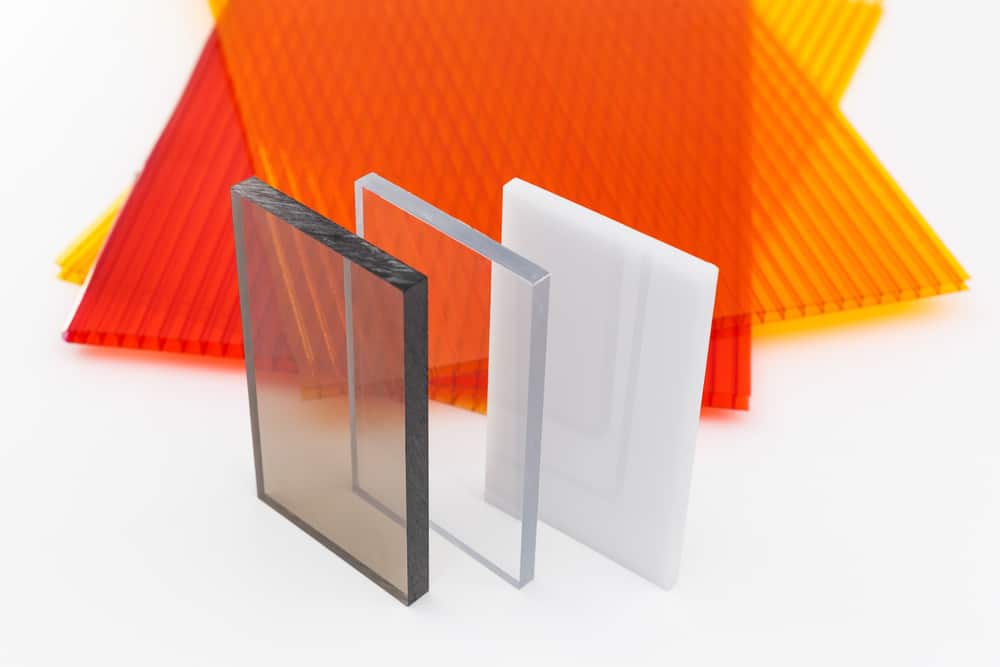Various materials can be used for headlamp lenses, but two of the most common are polycarbonate and acrylic. These materials have unique benefits and drawbacks, so it’s important to understand their differences when deciding the best option for your needs.
Benefits of Plastic Headlamp Lenses Over Glass
Plastic lenses offer several advantages over glass lenses in automotive headlamp applications. These benefits include:
- Cost-Effective: Plastic lenses are less expensive to produce compared to glass.
- Strong: Plastic lenses are more durable and have higher tensile strength.
- Non-Breaking: Due to their polycarbonate structure, plastic lenses won’t break easily in the event of an accident.
- Easily Formed: The plasticity of plastic headlamp lenses makes it easy to form them into complex shapes using the injection molding process.
- Easily Bonded: Plastic headlights can be easily worked into the combined lamp assembly or other headlight components using adhesives or the plastic welding process.
What Is Polycarbonate?
Polycarbonate is a strong, impact-resistant plastic used to manufacture most headlight lenses. Due to its transparency and ability to withstand impacts better than other common plastics, polycarbonate offers high levels of durability as well as the ability to internally transmit light almost as effectively as glass. Polycarbonate headlight lenses can withstand harsh conditions and maintain their clarity, making them an essential component for various vehicles.
Advantages of polycarbonate for headlamp lenses include:
- Customizable
- Lightweight
- Ultra-durable
- Easy to use
- Expert support
Although it offers several benefits, polycarbonate lenses have some drawbacks. Despite its versatility, polycarbonate can oxidize over time, resulting in hazy, yellowed headlights that give poor illumination for the driver and make them difficult for others to see.
What is Acrylic?
Acrylic, or polymethyl methacrylate (PMMA), is a durable polymer consisting of methanol and methacrylic acid. This material is naturally transparent, allowing 92% of light to pass through it. Acrylic is also significantly more impact resistant than glass, making it ideal for headlamps.
Advantages of acrylic for headlamp lenses include:
- Safer than glass
- Durable
- More translucent
- 2x lighter than glass
- Less expensive
- Easier to work with
- 10x as strong as glass
Acrylic is a great material alternative for glass; however, it is more prone to scratching and is not as heat-resistant.
Polycarbonate Headlamp Lenses vs Acrylic Headlamp Lenses
Due to their versatility, polycarbonate and acrylic are both common material options for automotive headlamp lenses. Both polymers have their own unique set of characteristics that make them suitable for different applications.
- Impact resistance: Both polymers are strong, but polycarbonate is more resistant to impact. Polycarbonate is 250 times more impact-resistant than glass, whereas acrylic is 10 times more resistant.
- Clarity: In terms of clarity, acrylic is the clear winner with a light transmittance of 92%. Polycarbonate has a light transmittance of 88%.
- Fabrication and Customization: When it comes to fabrication and customization, polycarbonate has the edge over acrylic, as acrylic needs to be heated to be bent. Polycarbonate is more flexible and can be bent without being heated.
- Cost: While the cost of these polymers tends to shift based on availability, acrylic is often less expensive than polycarbonate.
- Temperature and Heat: Both materials can withstand high temperatures. However, polycarbonate can resist temperatures up to 240° F, whereas acrylic can only be used up to 190° F before it starts to bend or soften.
Why Choose Fabrik Molded Plastics, Inc.
At Fabrik Molded Plastics, we pride ourselves on being the premier choice for molded plastics. Our high quality standards and knowledge of lens-grade materials have set us apart as the go-to source for the forward, rear, and signal lighting markets. We offer reflex, standard, and LED-style lenses for diverse customers in the automotive industry. We can provide polycarbonate and acrylic type lenses molded in clear, amber, or red to meet various needs.
Contact Fabrik Molded Plastics
For more information about our products and capabilities, contact us today or request for quote.


